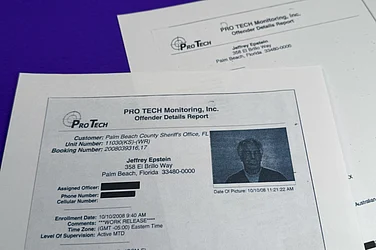A university in China's capital Beijing has banned students and staff from taking any prints without verification, according to a report.
The decision by Tsinghua University in Beijing comes days after banners appeared in Beijing which called Chinese President Xi Jinping a dictator and a traitor. In a country run by the Communist Party of China's (CPC) with an iron fist, the banners were an extremely rare act of defiance.
The decisions were justified with an invocation of security angle.
"To ensure the stability and security of daily education and research of our university and prevent all security risks, all print and copy shops need to strictly implement the visitors' verification and recording procedure," said a notice co-issued by the university and Beijing Municipal Police Bureau.
The notice, along with its English translation, was shared on Twitter by The Great Translation Movement (TGTM), which posts news updates and documents from China translated into English.
"After the protest against Xi Jinping on Sitong Bridge, Tsinghua University stops self-service printing to prevent students from posting flyers against Xi Jinping. Maybe, the real-name system will also be required to purchase printers," said TGTM in a tweet sharing the translated notice.
The notice also said that content being printed will also be verified.
"Every worker and owner of your shop need to take primary responsibility to ban any students or education workers to print without registration and content verification," said the notice, adding that "every single page" needs to be verified and a violation would have "serious consequence".
Last week, banners appeared on a bridge in Beijing in protest against China's Zero Covid policy.
A translation by CNN journalist Selina Wang of some of the slogans read as "Go on strike. Remove dictator and national traitor Xi Jinping" and "Say no to covid test, yes to food. No to lockdown, yes to freedom".
Journalist Bill Birtles called the protest "extraordinary" in context of the CPC meeting.
"Extraordinary given pre-Congress security plus surveillance...Extraordinary given the politics and security just out from the Congress...Such a small protest elsewhere wouldn't be worth so much attention but in Beijing. If anything the other banner is all the more daring in pre-Congress Beijing, calling Xi Jinping a dictator and calling for strikes," notes Birtles on Twitter.
China's Zero Covid policy refers to the Chinese approach of imposing blanket lockdowns after some cases are reported. The idea behind this is to keep people indoors and stop the viral spread, therefore minimising infections and deaths. This is opposed to the 'living with the virus' approach taken in the most of the rest of the world where infected pepole are isolated, their contacts are tracked, tested, and quarantined.
Zero Covid policy has led to great economic hardship and loss of industrial and economic production. It is also a burden on Chinese government. China's financial hub Shanghai and capital Beijing were locked down for months earlier this year, bringing economic activity to a halt.
"While the Chinese leadership believes that massively expanded mass testing will identify infections early and trigger measures to contain the outbreak without causing harmful disruption to the economy, it is still too early to know whether that approach will succeed. One thing is known: testing at this scale costs tens of billions of dollars, which may amount to 1.5 per cent or higher of China’s GDP," reported think tank Center for Strategic and International Studies (CSIS) in a report.


























